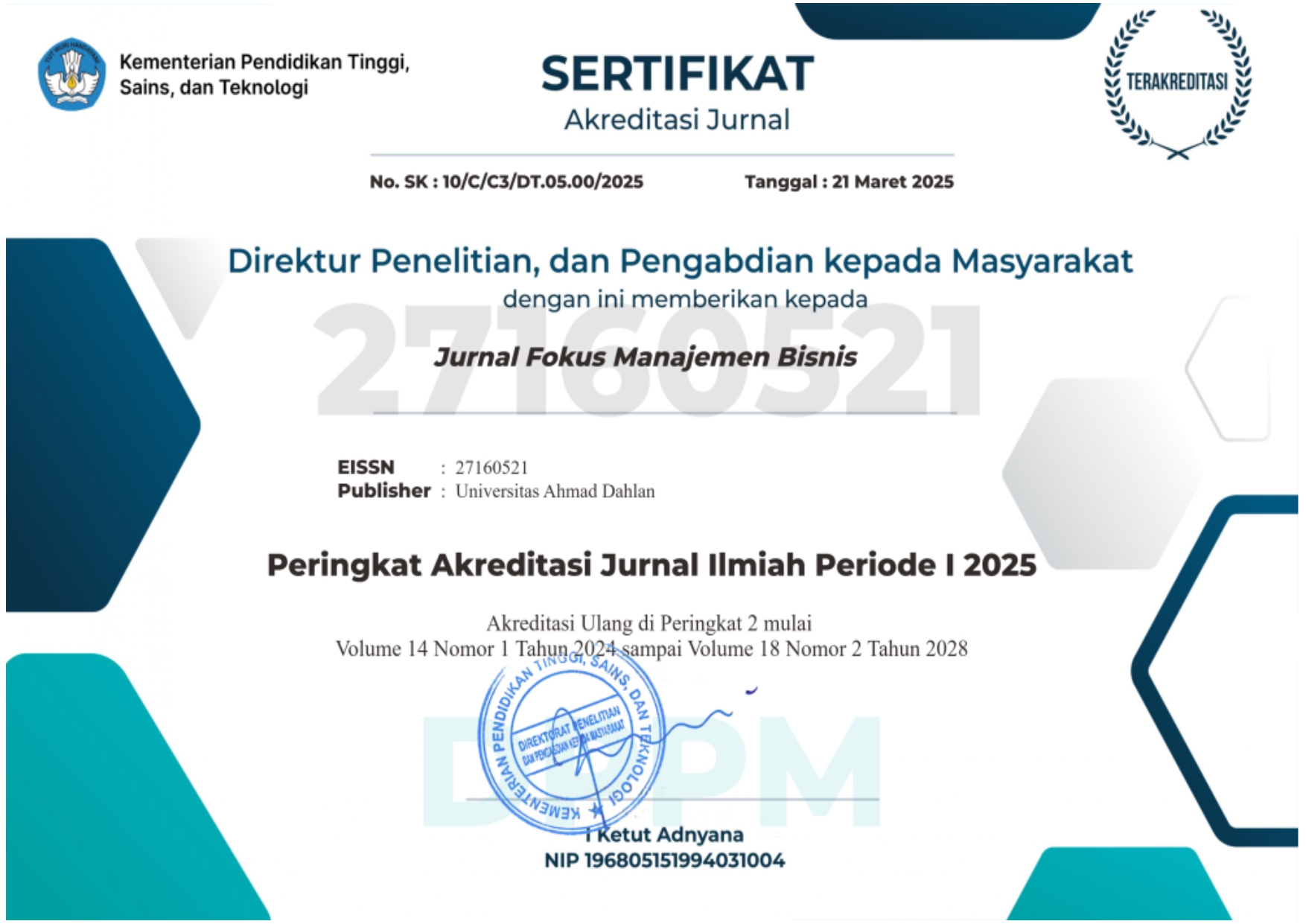PENGARUH HARI PERDAGANGAN TERHADAP RETURN SAHAM: PENGUJIAN MONDAY, WEEK-FOUR, DAN ROGALSKI EFFECT DI BURSA EFEK INDONESIA
DOI:
https://doi.org/10.12928/fokus.v3i2.1341Keywords:
return share, trading days, week-four effect, Rogalski effect, a variable of dummyAbstract
This research is aimed to test the influence of trading days to return its shares at the Indonesian Stock Exchange by using 31 stocks listed on the meantime, the LQ45 during the period of research February 2011-January 2013. Use sampling techniques of sampling purposive with criteria sample is actively traded shares during a period of research. In analyzing the study data used multiple linear regression analysis method with variable dummy. An independent variable in this research is trading days shares in the Indonesia Stock Exchange and the dependent variable, regression equation of which is used to test each hypothesis of this research is to return shares daily. Results of the research indicate that there is an influence of the trading days against the return of shares in Indonesia Stock Exchange. Return lowest is on Monday and highest return on Friday. Return on Friday that negative influenced by return on Monday that negative. The research found the Week-four effect, but research not proved the existence of Rogalski effect in Indonesia Stock Exchange.Downloads
Published
2013-09-30
How to Cite
Sarwinda, S., & Asakdiyah, S. (2013). PENGARUH HARI PERDAGANGAN TERHADAP RETURN SAHAM: PENGUJIAN MONDAY, WEEK-FOUR, DAN ROGALSKI EFFECT DI BURSA EFEK INDONESIA. Jurnal Fokus Manajemen Bisnis, 3(2), 140–149. https://doi.org/10.12928/fokus.v3i2.1341
Issue
Section
Articles
License
Authors who publish with this journal agree to the following terms:Â
- Authors retain copyright and grant the journal right of first publication with the work simultaneously licensed under a Creative Commons Attribution License that allows others to share the work with an acknowledgment of the work's authorship and initial publication in this journal.
- Authors are able to enter into separate, additional contractual arrangements for the non-exclusive distribution of the journal's published version of the work (e.g., post it to an institutional repository or publish it in a book), with an acknowledgment of its initial publication in this journal.
- Authors are permitted and encouraged to post their work online (e.g., in institutional repositories or on their website) prior to and during the submission process, as it can lead to productive exchanges, as well as earlier and greater citation of published work (See The Effect of Open Access).






